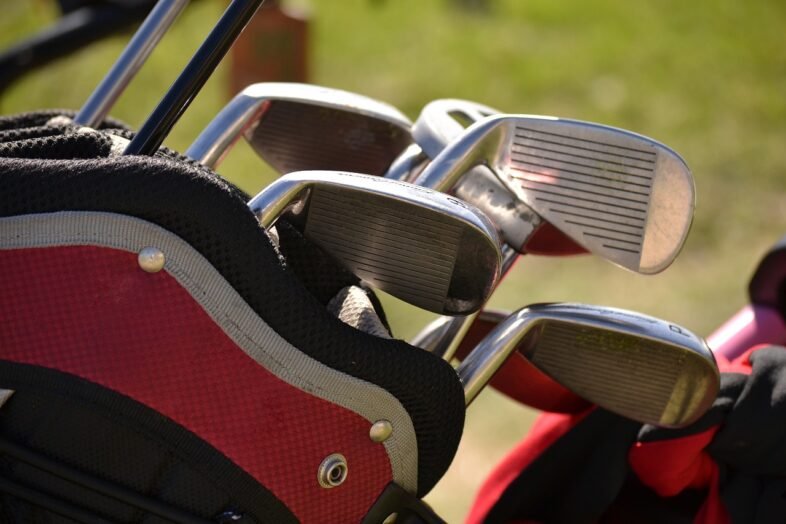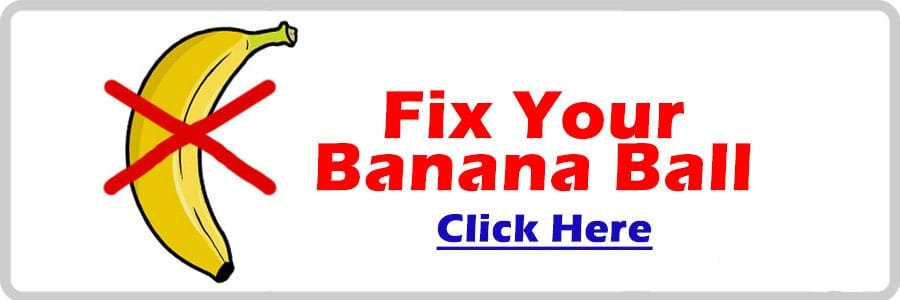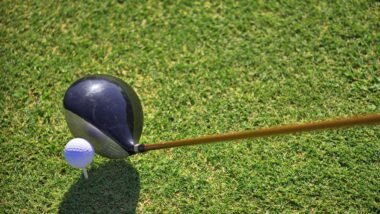Have you ever wondered why you can hit your irons straight but struggle with slicing your driver? It’s a common frustration among golfers, and the answer often lies in several key factors. Understanding these will not only help you fix your driver slice but also enhance your overall game.
Understanding the Basics of Irons and Drivers
The Role of Club Design
The design of your irons and driver plays a significant role in how the ball travels. Irons are shorter and heavier, allowing for more control. They are designed to create a downward strike, which helps produce a straight shot. On the other hand, drivers are longer and lighter, intended for distance. This design can sometimes lead to less control, especially if your swing mechanics are not optimal.
Swing Path Influence
A golfer’s swing path substantially affects the ball’s flight. When you swing your irons, your path is often more vertical, which is conducive to a straight shot. However, when working with your driver, it’s common to have a more horizontal swing path that can lead to slicing if not managed properly.
Common Reasons Behind the Slice
Grip Issues
Your grip can have a profound impact on your shots. With a proper grip, you can improve the orientation of the clubface at impact. If your grip is too weak or too strong, it may lead to an open clubface, which is often the culprit behind a slice.
Types of Grips
| Grip Type | Description | Potential Issue |
|---|---|---|
| Weak Grip | Thumb positioned more to the left | Open clubface at impact |
| Strong Grip | Thumb positioned more to the right | Closed clubface might cause hook |
| Neutral Grip | Balanced positioning | Ideal for straight shots |
Stance and Setup
A proper stance and setup are essential for hitting straight shots. Your positioning at address can impact your swing path and the angle of attack. If you stand too open to the target line with your driver, it can lead to an outside-in swing path, causing a slice.
Swing Mechanics
Every golfer has their own swing mechanics, and sometimes, those mechanics that work well for your irons may not translate to your driver effectively.
Key Swing Components
- Backswing: Often, a correct backswing allows for a more connected downswing. This connection is crucial for consistency.
- Downswing: An inside-out swing path is beneficial for straight hits. If your club is coming over the top during this phase, it can lead to a slice.
- Follow-through: A proper follow-through can indicate that you’ve had a good swing path. If your follow-through shows your club moving left, it could be due to a slice.
Fixing Your Slice
Analyzing Your Grip
Start by evaluating your grip. A neutral grip can help you maintain control of the clubface. If you suspect your grip is too weak or strong, spend some time adjusting it during practice.
Adjusting Your Stance
Make sure your feet are parallel to your target line. A balanced stance will promote a more natural swing, reducing the chances of an outside-in path. Position the ball off the inside of your lead foot to help achieve the correct angle of attack.
Practice Your Swing Mechanics
Consider filming your swing to analyze your mechanics. Check if your backswing is too steep or too flat. Focus on keeping your arms and club in sync during the transition from the top of your swing to the downswing.
Drills to Improve Your Driver
Swing Path Drill
This drill can help you visualize and feel the correct path.
- Setup: Place two alignment sticks in the ground, forming a gate at your desired impact point.
- Swing: Practice swinging through the gate, ensuring your clubhead travels along the intended path.
Grip Pressure Drill
To adjust your grip pressure:
- Grip the Club Lightly: Start by holding the club with minimal pressure.
- Gradually Increase Pressure: As you swing, apply more pressure but maintain comfort. This can help reduce excess movement.
Impact Drill
Focusing on your impact position is crucial.
- Tee Drill: Set up a tee just above the ground and practice hitting the ball off the tee. Concentrate on the point where the clubface meets the ball.
- Feel the Contact: This drill enhances your awareness of how the clubface should align at impact.
The Mental Game
Building Confidence
One often-overlooked aspect is the mental side of golf. Building confidence in your driver through repeated practice can help you let go of the tension that causes slices.
Visualization Techniques
Before each swing:
- Picture the Shot: Visualize a straight shot soaring down the fairway.
- Affirmations: Use positive affirmations to reinforce your confidence, such as “I hit the ball straight and true.”
When to Seek Professional Help
If you’ve tried various adjustments and still find yourself slicing your driver, seeking help from a golf professional might be a wise choice. They can provide personalized feedback and develop a plan tailored to your specific swing issues.
Benefits of Professional Lessons
| Benefit | Description |
|---|---|
| Personalized Feedback | Tailored advice based on your swing and setup |
| Structured Learning | A comprehensive approach to improve all aspects of your game |
| Accountability | Regular check-ins can keep you motivated and progressing |
Conclusion
Understanding why you hit your irons straight but struggle with your driver can be tackled by breaking down the individual components of your game. By examining your grip, stance, swing mechanics, and even the mental approach, you can start to make adjustments that yield positive results. Remember, golf is a journey, and with patience and practice, you can turn that slice into a straight shot down the fairway. Keep swinging, and enjoy the process!






